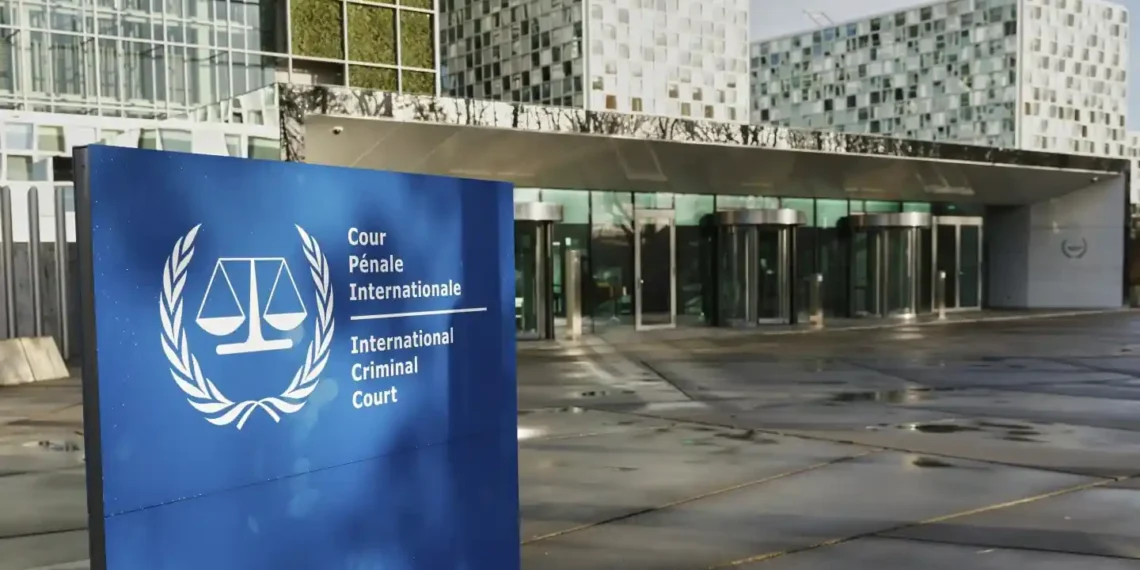Trump’s Sanctions Cripple International Criminal Court, Disrupt War Crimes Investigations
THE HAGUE, Netherlands — Sanctions imposed by former U.S. President Donald Trump on International Criminal Court (ICC) Prosecutor Karim Khan have severely disrupted the tribunal’s operations, raising concerns about its ability to deliver justice for victims of war crimes and genocide.
From frozen bank accounts to inaccessible emails, the ICC’s ability to function has been paralyzed. Key staff—including American personnel—have been warned they could face arrest if they return to the U.S. Human rights groups have distanced themselves. And major investigations, including those into Sudan and Israeli actions in Gaza, have stalled.
Sanctions Trigger Crisis at The Hague
In February, Trump issued an executive order targeting ICC chief prosecutor Karim Khan and other non-U.S. staff. The order banned them from entering the U.S. and threatened individuals or organizations offering them material or financial support with penalties—including prison time.
Karim Khan’s email was canceled by Microsoft, his UK bank accounts were blocked, and he now relies on Swiss-based Proton Mail for communication. American staffers have been advised not to travel to the U.S. due to potential legal risks. Six senior court officials have already resigned due to the escalating pressure.
Even NGOs that support the ICC are retreating. Some groups moved funds from U.S. accounts for fear of seizure. At least two major U.S.-based human rights organizations have cut ties with the court entirely.
ICC’s Work Grinds to a Halt
The sanctions have undermined ICC investigations globally—not just the politically sensitive one into Israel’s conduct in Gaza. Probes into atrocities in Sudan, including the long-running case against former President Omar al-Bashir for genocide, have slowed or stopped.
“Victims are being denied justice,” said Liz Evenson of Human Rights Watch. “This is having a chilling effect on the ICC’s ability to function.”
Karim Khan himself has been silenced in other ways. ICC judges have blocked him from publicly announcing requests for arrest warrants in multiple investigations—including in Afghanistan and the Palestinian territories.
A Pattern of Pressure
This isn’t the first time Trump has targeted the ICC. In 2020, his administration sanctioned Khan’s predecessor, Fatou Bensouda, over investigations into U.S. actions in Afghanistan. President Joe Biden reversed those sanctions when he took office—but Trump reimposed them shortly after returning to power.
The current order accuses the ICC of “baseless actions” against Israel and the U.S., claiming it endangers American personnel and violates national sovereignty.
Israeli Prime Minister Benjamin Netanyahu, one of the individuals named in ICC arrest warrants, has called the charges “absurd.” Israel’s parliament is now weighing legislation to criminalize cooperating with the ICC.
Legal Battles and Global Fallout
Karim Khan is now fighting back through the courts. ICC prosecutor Eric Iverson, who works on Sudan-related cases, filed a federal lawsuit in the U.S. and recently secured temporary protection from prosecution. However, other ICC American staff must file separate legal actions for similar safeguards.
The court also faces a shrinking pool of cooperating governments. Over the past year, three countries—including two EU members—have refused to enforce ICC warrants. Without an enforcement mechanism of its own, the court depends heavily on member state cooperation.
Internal Struggles and Allegations
Beyond external pressure, the ICC faces internal turmoil. Judges have restricted Khan’s ability to share warrant requests. And just before he moved to charge Israeli officials, two ICC staffers accused Khan of sexual harassment. A United Nations investigation is underway. Khan denies the allegations but has been accused of retaliating against those who supported the complainant.
Inside the court, staffers joke darkly about avoiding even minor favors to Khan—like lending a pen—fearing it could be construed as illegal support under U.S. sanctions.
This article was rewritten by JournosNews.com based on verified reporting from trusted sources. The content has been independently reviewed, fact-checked, and edited for accuracy, neutrality, tone, and global readability in accordance with Google News and AdSense standards.
All opinions, quotes, or statements from contributors, experts, or sourced organizations do not necessarily reflect the views of JournosNews.com. JournosNews.com maintains full editorial independence from any external funders, sponsors, or organizations.
Stay informed with JournosNews.com — your trusted source for verified global reporting and in-depth analysis. Follow us on Google News, BlueSky, and X for real-time updates.














